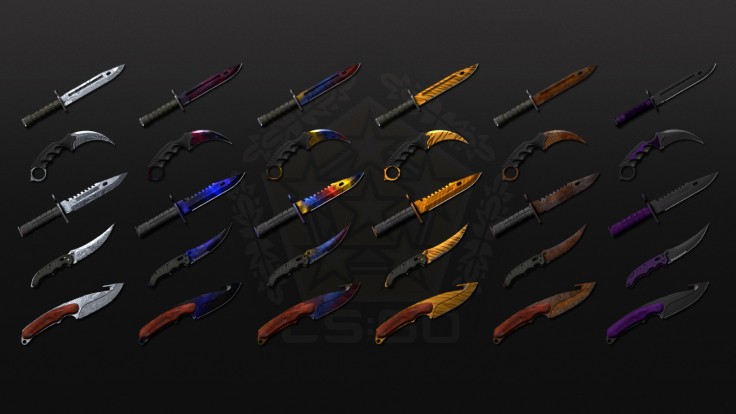Children 'groomed to gamble' by playing Counter-Strike: Global Offensive and Dota2
Parents are 'oblivious' to the problem of online videogame gambling.

Children are being "groomed to gamble" through popular online video games such as Counter-Strike: Global Offensive (CS: GO) and Dota2, an Australian politician seeking to bring in new legislation regarding the issue has claimed.
"This is the Wild West of online gambling that is actually targeting kids," said independent senator Nick Xenophon, as reported by the Sydney Morning Herald. He added "insidious" games are now being played by hundreds of thousands of Australian teenagers that "purport to be one thing" but are "morphing into full-on gambling and that itself is incredibly misleading and deceptive."
"Instead of shooting avatars, parents soon find out that [their children] have shot huge holes through their bank accounts," he continued, adding that his new legislation on video game gambling intends to make it illegal for game developers to seek payment for items based on 'chance'.
Xenophon's new legislation would also mean that game games would be forced to have clear warning signs of any gambling content and there could be age restrictions put in place on paying to play. At the time of writing, there are no exact details on what the legislation contains. However, it is expected more will emerge when the Australian federal parliament resumes next month.
In many online-based video games, players are able to purchase skins – clothing and other decorations for characters – or other decorative items to be used in-game using real-world currency. Gamers can then sell the skins for credit on Valve's game marketplace, called Steam, or use them as currency on dozens of third-party casino-style websites.
The strong association with gambling appears to be linked to how these items are presented – with critics claiming they often resemble slot machines with flashing images.
Game gambling
Additionally, betting on eSports – competitive multiplayer videogames – using real-world cash is spiking in the West. One European betting firm, Bwin, claims that, for the first time, people are now more likely to spend their money on multiplayer battle game League of Legends than on the Champions League football tournament.
ESports events are now featured on well-known betting websites such as William Hill and Paddy Power.
Sally Gainsbury, an academic on gambling education and research, told the Sydney Morning Herald it is "very concerning" that children with no previous exposure to gambling are suddenly being faced with it, and that this will likely result in them moving on to legitimate betting websites in future.
Under existing law in Australia, it is illegal for firms not registered in the country to allow people there to bet on their websites. "In the absence of regulation, we really need to have [education] that these sites are not safe to use, these are illegal sites and are not regulated in Australia and there is no protection," Gainsbury said.
The news of updated legislation comes after a betting scandal hit two YouTube streamers, Thomas 'ProSyndicate' Cassell and Trevor 'TmarTn' Martin. The pair had failed to tell viewers they owned a gambling website called CSGO Lotto while promoting it to an audience of millions.
Most recently, Valve, the developer and publisher of Counter-Strike, started issuing cease-and-desist notices to websites that use Steam services to enable users to bet against each other. In total, 23 websites – including CS:GO Lotto, CS:GO Big and Dota 2 Lounge – were sent the notices.
© Copyright IBTimes 2025. All rights reserved.






















